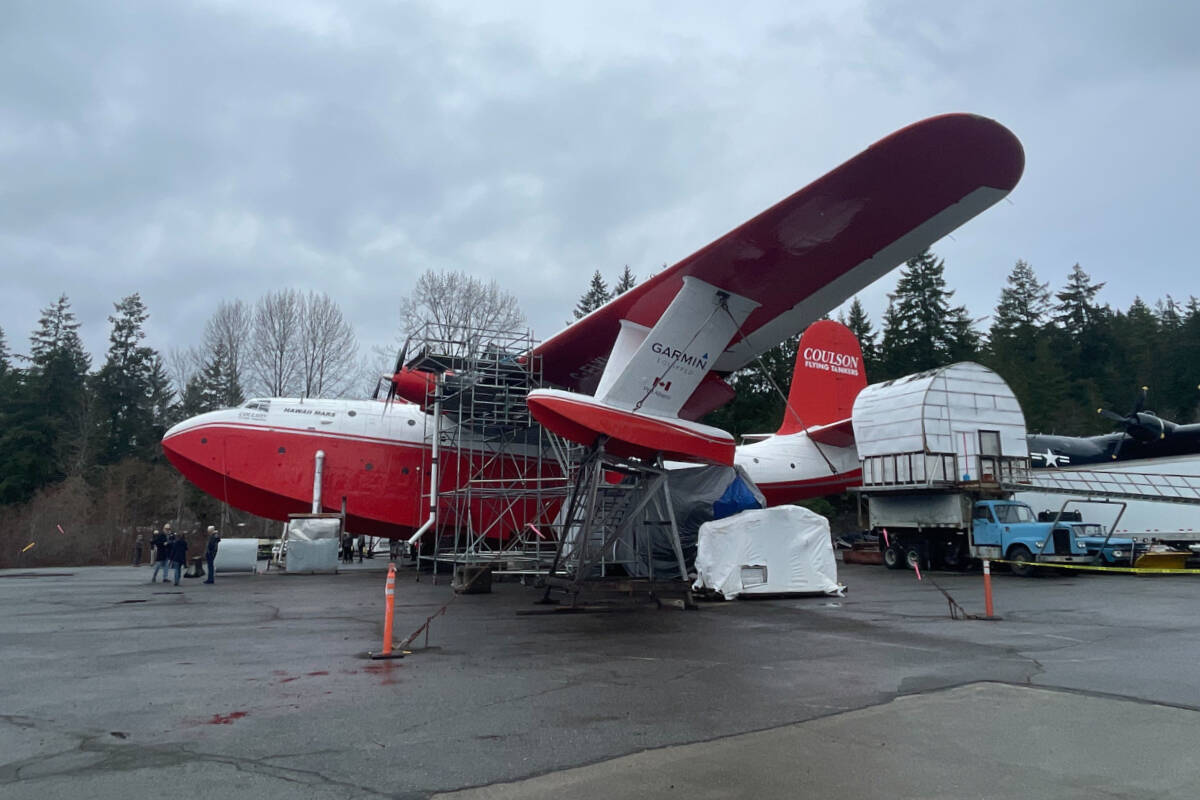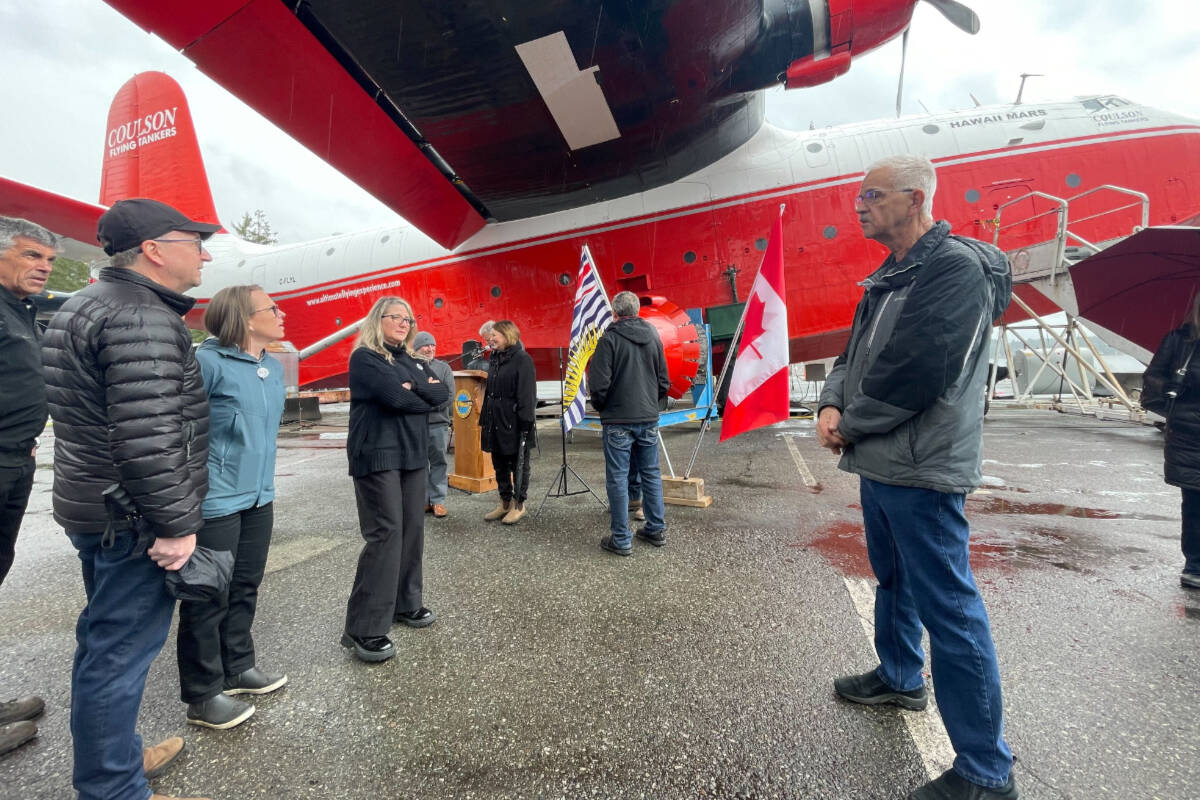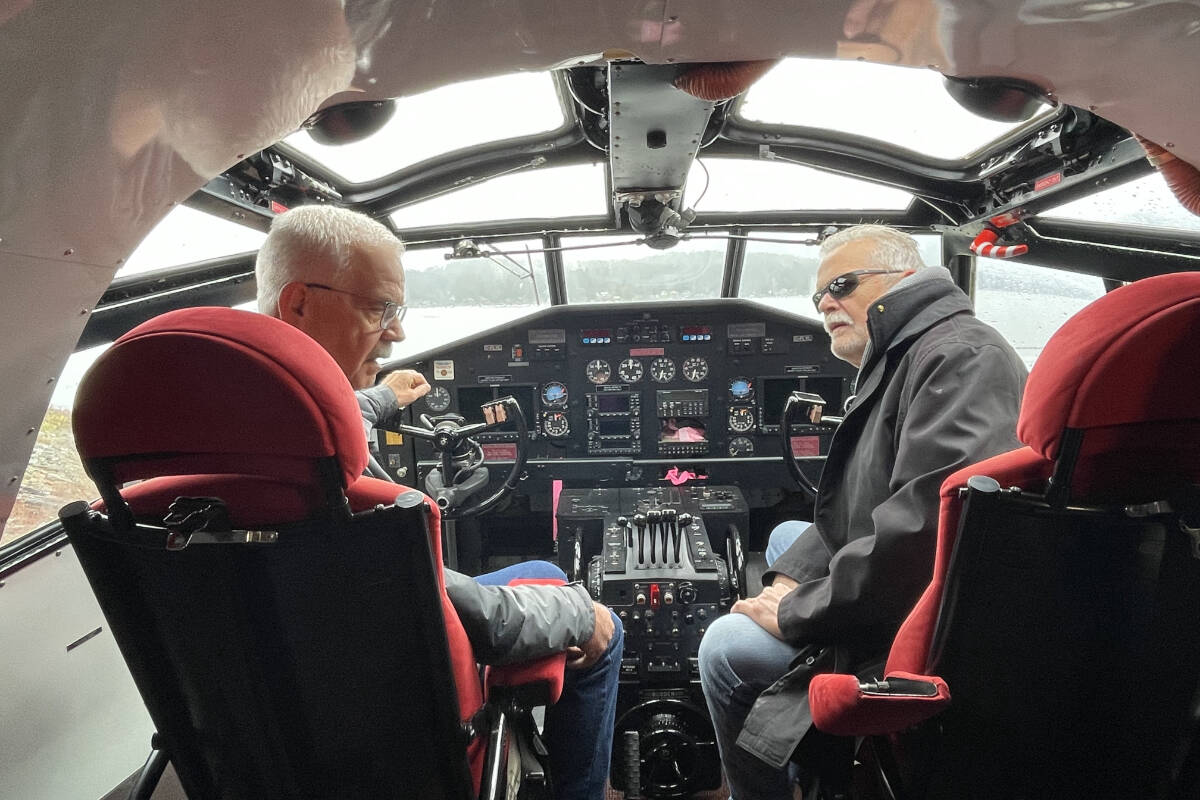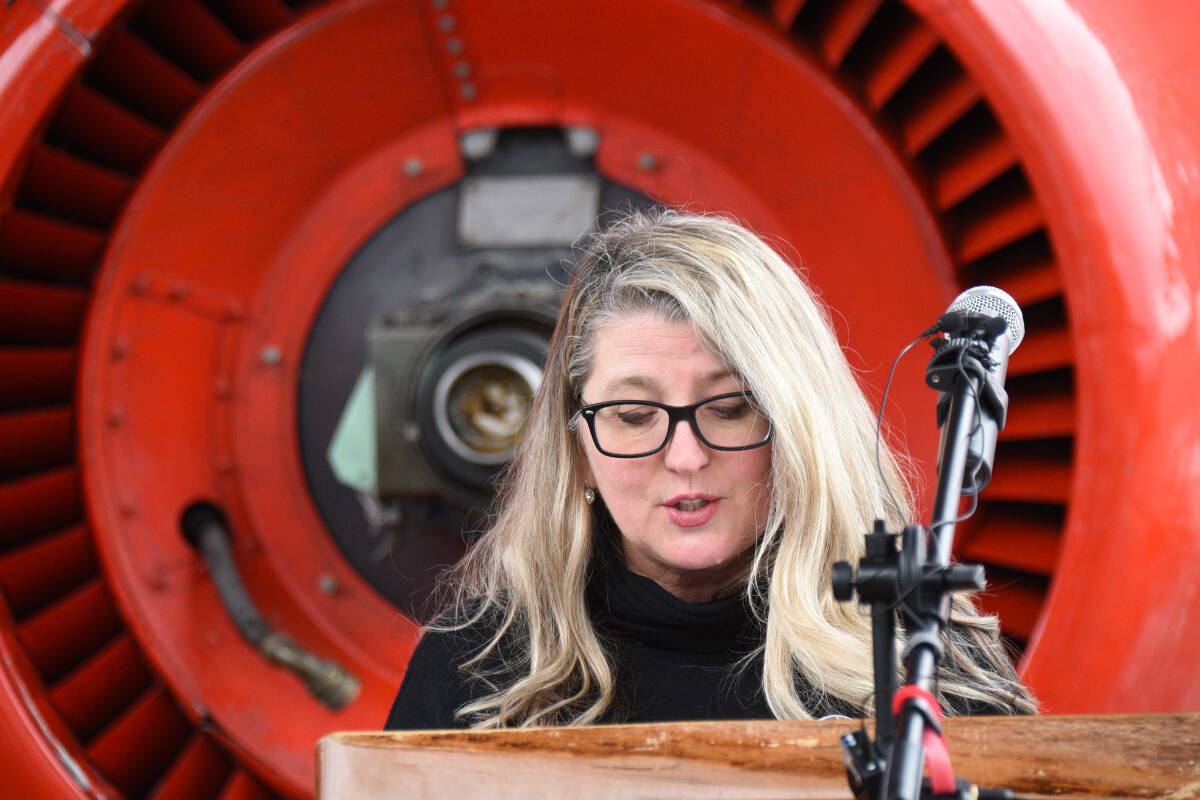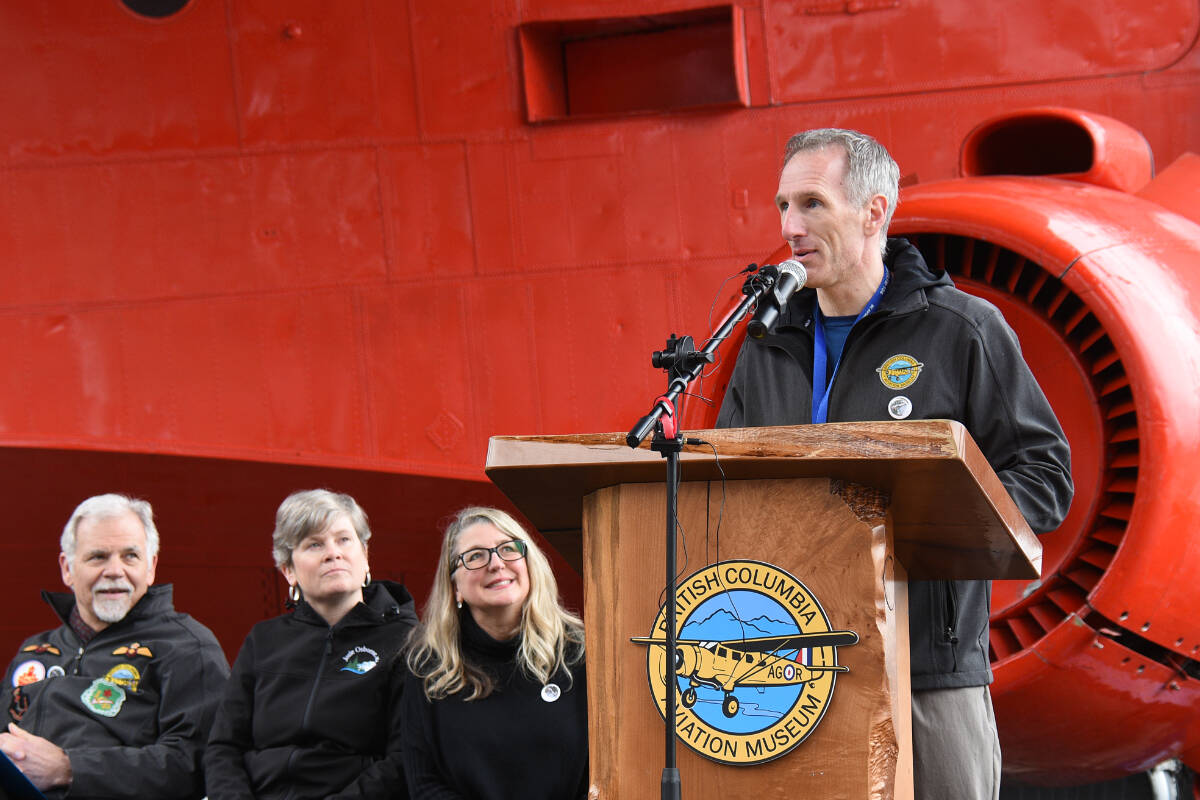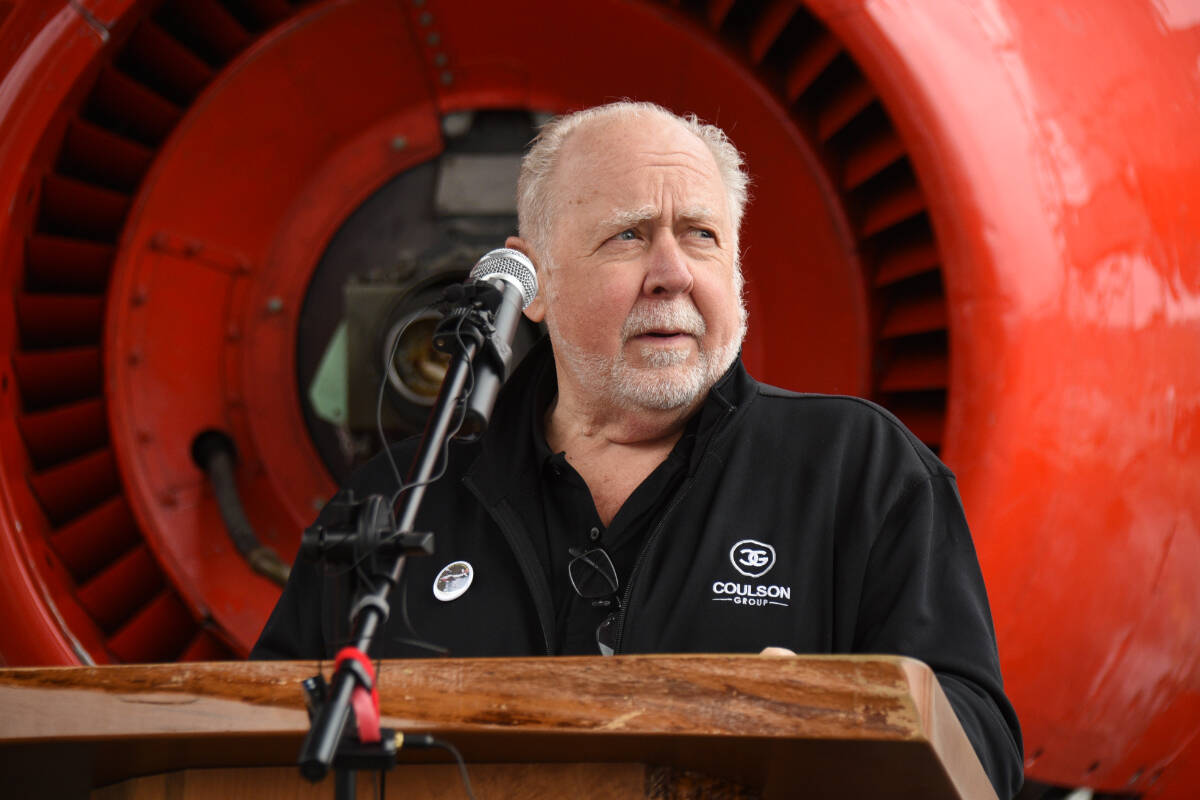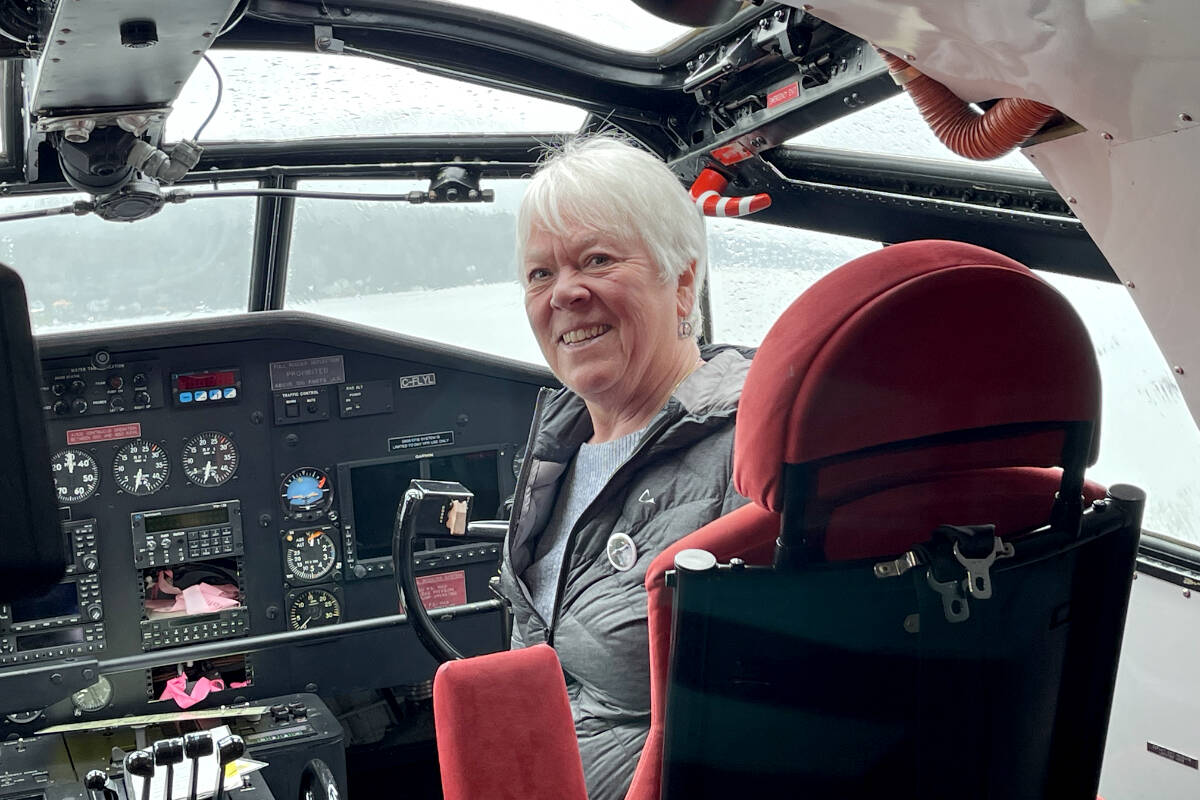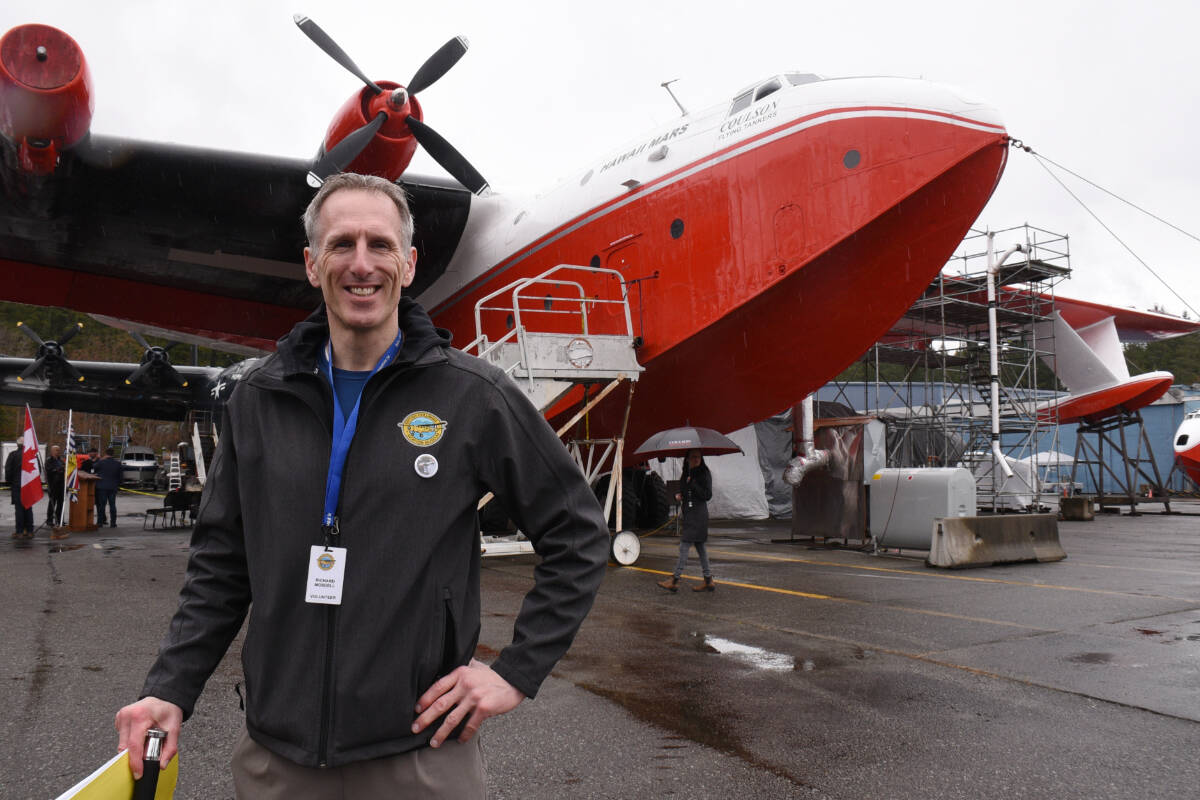The Hawaii Mars water bomber will be taking one final flight.
The iconic red-and-white Martin Mars water bomber will be flying to its new home at the British Columbia Aviation Museum later this year, after a $250,000 funding announcement by the province. The funding will “protect and preserve” the Hawaii Mars “as a significant part of B.C.’s aviation history,” says the B.C. Ministry of Tourism, Arts, Culture and Sport.
The water bomber’s final flight from Coulson Aviation Tanker Base on Sproat Lake in Port Alberni to the Saanich Inlet beside Victoria International Airport is expected to take place before the end of 2024 and will be a multi-phase process that involves passing federal inspections, crew training and test flights.
Coulson Aviation will enlist five former certified maintenance engineers and four flight crew to complete approximately 10,000 hours of aircraft preparation and flight retraining over six months. Pete Killin and Rick Matthews are two of the pilots that will be taking the Martin Mars on its final flight. Killin has more than 1,000 hours of flying time in the Mars.
READ MORE: Martin Mars waterbombers firefighting days are past: Coulson
“It deserves a proper resting place,” he said. “I can’t think of a better place than to be the main attraction for the firefighting industry.” He said the final water drop “will be the pilots crying.”
At the British Columbia Aviation Museum, the aircraft will be established as the centrepiece of a new B.C. wildfire aviation exhibit. The new exhibit will be interactive, inviting visitors to explore the features of the aircraft up close and foster an appreciation for its historical, cultural and aeronautical significance.
“I am fascinated by this aircraft and its historical ties to British Columbia,” tourism minister Lana Popham said while standing under the giant wing of the Hawaii Mars.
“It’s a proud symbol of B.C.’s ingenuity, innovation and it is an impressive example of reuse, recycle and repurpose. If it weren’t for a group of B.C. timber companies envisioning a new use for these aircraft, they might not have been part of B.C. history.”
The Hawaii Mars was one of five Martin Mars aircraft originally conceived as military bombers in the United States during the Second World War. It started service in 1945 as a transport aircraft for the United States Navy.
It was later purchased by a consortium of timber companies in British Columbia and converted to a water bomber to protect the timber lands on Vancouver Island. In 2007, it was sold—along with the Philippine Mars—to Port Alberni’s Coulson Aviation.
The Hawaii Mars hasn’t taken part in firefighting action since 2015, when the province signed a 30-day agreement to use the aircraft. The contract was not renewed.
“It was the beginning in 2007 of our fixed wing air firefighting program,” said Gary Collinge, representing the Coulson family at the announcement. Collinge has worked with Coulson Aviation in a variety of roles for 50 years. He said the Coulson family is “thrilled” that the Hawaii Mars will stay on Vancouver Island. “They’re excited to participate and support this whole program.”
The project will cost approximately $1 million to move the Hawaii Mars and house it in Victoria, said project lead Richard Mosdell of the B.C. Aviation Museum. The museum is raising half a million dollars, the Coulson family is donating another half million and Heritage Canada is expected to contribute in the future, he said. The Victoria Airport Authority has given the museum some land where the Hawaii Mars will sit until a new hangar can be built at the museum.
“This is a perfect start and we’re able to kick-start preparations so that we can get the aircraft ready for the big blockbuster arrival weekend in the fall.”
Mosdell said the museum was in talks to have both the Hawaii and Philippine Mars at the museum, but ultimately decided on one aircraft. No plans for the Philippine Mars were discussed.
Mid Island-Pacific Rim MLA Josie Osborne and Penny Cote, Alberni-Clayoquot Regional District director for Sproat Lake, both said the announcement is bittersweet. “We have so much pride here in the Alberni Valley that we have a global leader in aerial firefighting,” Osborne said. ” I know it’s going to be a bittersweet day when we see her take off from Sproat Lake for the last time.”
More to come…
